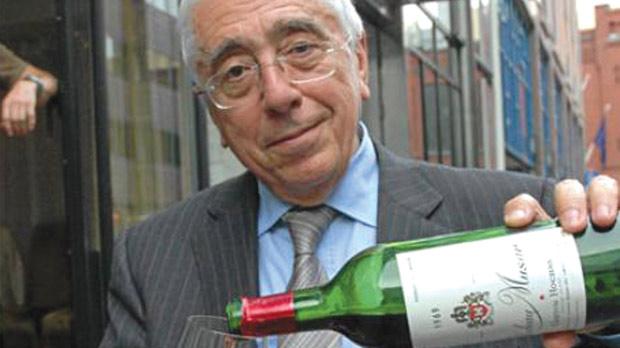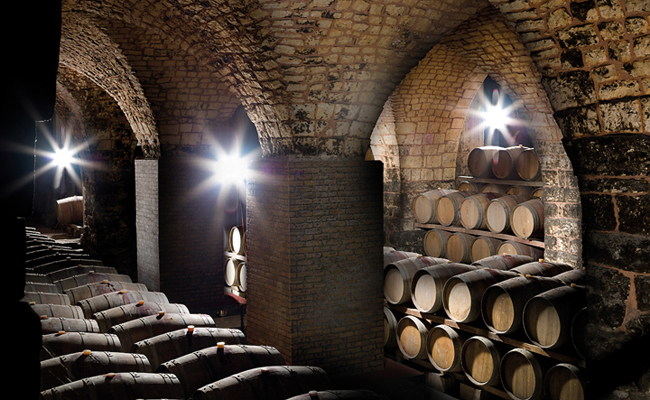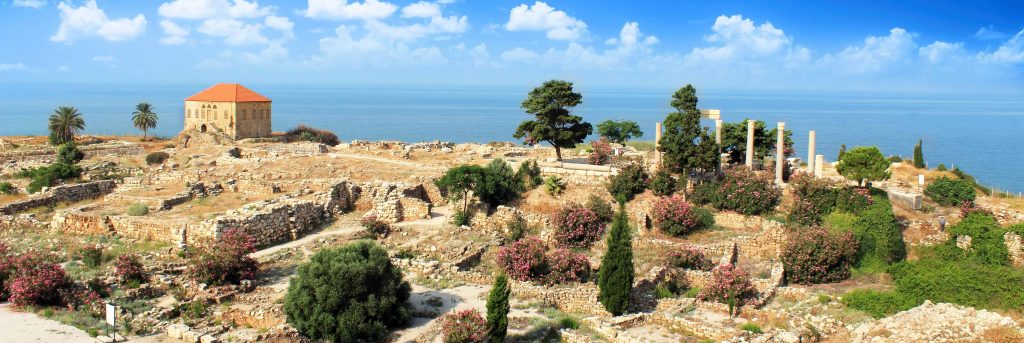Deeply ingrained in Lebanon’s cultural and historical fabric, Chateau Musar is a monument of winemaking brilliance and tenacity. The history of Chateau Musar, from its establishment in 1930 to its rise to international renown as a winery, is one of ardour, tenacity, and an unwavering dedication to producing wines that perfectly encapsulate the Bekaa Valley.
Beginnings: Gaston Hochar’s Vision
Gaston Hochar established Chateau Musar in 1930, marking the beginning of the winery’s history. After visiting Bordeaux and learning about France’s illustrious winemaking heritage, Gaston returned to Lebanon intending to produce wines of the highest calibre that captured the distinctive terroir of his native country.

He chose the Bekaa Valley because of its perfect grape-growing environment, which combines a Mediterranean temperature, high elevations, and soils rich in limestone. The valley’s long history of winemaking, which dates back to the Phoenicians more than 6,000 years ago, gave Gaston’s goals a legendary start.
Although Chateau Musar initially made wines mainly for the local market, Gaston always had a bigger goal: to make Lebanese wines known worldwide. This dream established the basis for Chateau Musar’s subsequent worldwide success.
Lebanon Office
Chateau Musar SAL Baroudy str., Sopenco bldg.
B.P.: 281 Achrafieh, Beirut
Tel: +961 1 201828 , +961 1 328111 ,+961 1 328211
E-Mail: info@chateaumusar.com.lb
Winery
Ghazir – Keserwan – Lebanon
Tel / Fax: +961 9 925 127 , + 961 9 926 217
A New Era: The Impact of Serge Hochar
When Serge Hochar, Gaston’s son, joined the family business in the 1950s, Chateau Musar entered a critical phase. A former civil engineer who went on to study oenology in Bordeaux, Serge had a strong interest in winemaking and introduced a novel approach to the estate. In 1959, he took complete charge of the winemaking process and started experimenting with techniques that would distinguish Chateau Musar from the competition.
Long before natural winemaking gained popularity, Serge was a trailblazer. According to him, wine ought to be a true representation of its terroir with little assistance from humans. This kind of thinking gave rise to techniques like organic farming, employing wild yeasts for natural fermentation, and letting wines age for extended periods to fully develop their flavour. Serge took chances when making wine because he knew that every vintage would have a different story to tell, shaped by the Bekaa Valley’s climate and terrain.

His perseverance and inventiveness paid off. Chateau Musar had started to acquire international prominence by the 1970s and 1980s, particularly in Europe.
When Chateau Musar’s wines were showcased at the Bristol Wine Fair in 1979, they sparked curiosity among wine enthusiasts and critics. Serge’s dedication to quality was further acknowledged in 1984 when he was named the first-ever “Man of the Year” by Decanter magazine, highlighting his influence on the world wine industry.
Resilience in the Face of Adversity: Making It Through the Civil War in Lebanon
One of the most remarkable aspects of Chateau Musar’s history is its resilience during the 1975–1990 civil war in Lebanon. Serge Hochar stayed dedicated to making wine despite the bloodshed and instability that tore the nation apart.
Except the 1976 vintage, when the war prevented production, he and his staff were able to produce wine each year of the war despite the constant threats.
Wartime winemaking presented many difficulties: moving grapes from the Bekaa Valley to the Ghazir winery required negotiating hazardous routes and staying out of combat zones. Serge himself came dangerously close to death multiple times, yet he never wavered in his resolve to carry on the family tradition. This extraordinary tenacity became a distinctive characteristic of Chateau Musar’s history, establishing the winery’s reputation for tenacity and commitment.

Worldwide Acclaim and Cult Status
By the end of the 20th century, Chateau Musar had developed a loyal fan base and a cult following, particularly in the UK. The uniqueness of Musar wines, which are distinguished by their deep complexity, unusual flavours, and exceptional ageing potential, enthralled both wine enthusiasts and critics. In an increasingly homogenised wine market, the whites from ancient indigenous grapes like Obaideh and Merwah and the reds, which were frequently created from a blend of Cabernet Sauvignon, Cinsault, and Carignan, stood apart.
The wines of Chateau Musar were praised for their unconventionality. The whites were frequently compared to aged fine Burgundies, with layers of flavour that developed over decades, while the reds showed a blend of rich red fruits, earth, spices, and a distinctive oxidative quality. The winery’s reputation for excellence was further solidified by its dedication to release wines only when they were ready to be savoured.
The Tradition Lives On
The Hochar family continued to run the winery after Serge Hochar died in 2014, and his sons, Marc and Gaston, carried on the family’s legacy. They have maintained Serge’s vision while simultaneously looking for fresh chances for development and creativity. A fundamental principle of the estate is its dedication to organic farming and natural winemaking techniques, which guarantees that Chateau Musar will continue to create wines that are classic and up-to-date.
Chateau Musar is more than just a winery; it is a representation of the tenacity of the people of Lebanon and their rich cultural legacy. In an area that has seen many hardships, Chateau Musar’s narrative has served as a source of inspiration for innumerable wine lovers and a ray of hope. It acts as a reminder of the strength of tenacity and the close bond that exists between a people and their homeland.
Chateau Musar continues to be one of the world’s most distinctive and esteemed wineries as it approaches one hundred years of winemaking. Its wines are still praised for their uniqueness and the tales they convey, tales of the Bekaa Valley, the commitment of the Hochar family, and the indomitable spirit of Lebanon.
The wines